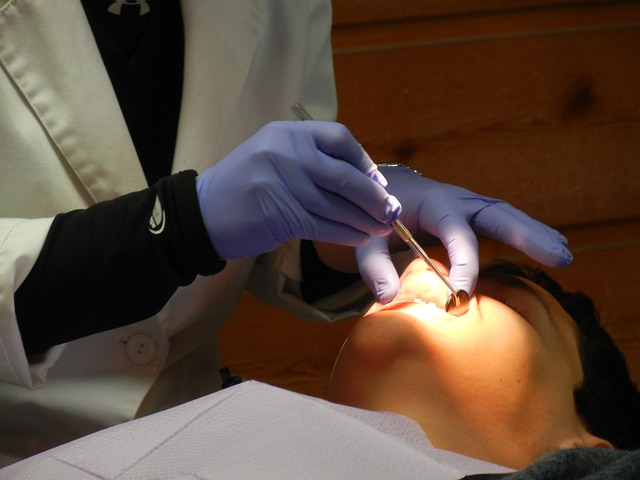In North America, about four million people (ages 18 and younger) wear braces. Though four in every five patients are minors, adults can benefit from orthodontic treatment, too. However, it’s important to avoid these common errors in wearing braces during treatment.
Otherwise, making these mistakes could delay your treatment plan. You might need to wear your braces longer than expected.
Make the most of your orthodontic treatment. Read on to learn which mistakes to avoid!
1. Not Visiting Your Orthodontist
One of the biggest mistakes you can make throughout the duration of your treatment is neglecting to visit your orthodontist. Scheduling a braces appointment can help your orthodontist assess your progress. They can help you avoid complications throughout your treatment.
Skipping appointments could mean a longer treatment plan. These appointments allow the orthodontist to make adjustments to your braces. You can also let your orthodontist know if you’re struggling or in pain.
Make sure to visit your orthodontist if your braces need repairs, too. Otherwise, a loose wire or bracket could cut the inside of your mouth.
Talk to your orthodontist to determine how often you should visit for checkups. How often you’ll need to schedule appointments will vary based on your treatment plan. If your treatment plan is longer, you’ll likely need more appointments.
2. Biting Hard Objects
Talk to your orthodontist to discuss the dos and don’ts of orthodontic treatment. For example, they’ll likely remind you to avoid biting on hard objects. Otherwise, you could unintentionally damage your braces.
Engaging in harmful habits can prove detrimental to your braces and oral health. Try to avoid:
- Biting your nails
- Chewing on ice
- Chewing on pens
- Using your teeth to open packages
These habits can exert unnecessary pressure on your braces. The brackets might break. You might even fracture a tooth if you’re not careful.
If these habits sound familiar, try practicing mindfulness. Choose a way to distract yourself each time you feel the urge to follow a harmful habit. A little self-discipline can go a long way to protect you and your braces.
Instead, turn to healthier stress-relief techniques. There are also tools you can use to avoid damaging your teeth or braces.
3. Neglecting Oral Hygiene
Neglecting your oral hygiene can affect your treatment plan and oral health. First, make sure to brush twice a day. Floss before bed to remove food particles and plaque from between your teeth.
Neglecting to floss can allow for particles, saliva, and bacteria to mix. Plaque can form, increasing your risk of tooth decay or gum disease.
Use flood threaders or orthodontic floss to floss with your braces in.
Use an antimicrobial mouthwash, too. Using mouthwash can reduce bacteria in your mouth.
Keep up with dental appointments to determine how to better improve your overall oral hygiene.
4. Ignoring Dietary Restrictions
Follow your orthodontist’s list of dietary restrictions to avoid damaging your braces. Otherwise, you could delay your treatment plan. Avoid sticky, hard, or chewy foods that can damage your brackets and wires.
These include hard candies, caramels, sticky gums, and popcorn. Don’t bite into hard fruits or vegetables, including carrots and apples, either.
These foods can cause discomfort or damage your braces.
Instead, talk to your orthodontist. They can advise you regarding your diet moving forward.
5. Making Repairs at Home
If there’s an issue with your braces, don’t try to fix the problem at home. If a bracket does break, don’t use superglue. Instead, visit your orthodontist as soon as possible.
Trying to fix the problem at home could do more harm than good. You could:
- Damage your teeth
- Cut your gums
- Swallow a broken piece
Your orthodontist can advise you if there’s an issue with your braces. Don’t forget about scheduling a braces appointment for routine check-ups, too.
6. Not Wearing Retainers
Once you complete your orthodontic treatment, you’ll need to wear your retainer. You’ll also need to follow your orthodontist’s advised follow-up care. Otherwise, you could undo the results of your treatment.
Wearing your retainer will help you maintain your new, straight smile.
Talk to your orthodontist about caring for your retainer. Rinse it under lukewarm water to wash away bacteria and plaque buildup. Soak it in a solution to keep it clean.
While wearing your braces, make sure to wear a mouthguard when participating in physical activities. Wearing a mouthguard can protect your teeth and braces. Otherwise, contact sports and other activities could increase the risk of oral injuries.
For example:
- Damaging your braces
- Jaw fractures
- Broken teeth
Wearing a fitted mouthguard will cushion your teeth and braces. The mouthguard will absorb the impact by distributing the force equally during an incident. You could minimize the risk of damaging your teeth or braces.
7. Choosing Cheap Options
Before beginning orthodontic treatment, visit an experienced, licensed orthodontist. Don’t choose the cheapest option you’re able to find online. A low-quality orthodontic appliance is more likely to break.
Instead, schedule a consultation with your orthodontist. Discuss the financing options they have available to find a plan that suits your budget.
You can call these local orthodontists to get started.
Avoid These Errors in Wearing Braces
Make the most of your orthodontic treatment. Try to avoid these seven common errors in wearing braces. Instead, talk to your orthodontist and follow their treatment plan to the letter.
After they remove your braces, you can start grinning from ear to ear with your new, stunning smile!
Searching for more helpful tips? You’ve come to the right place.
Check out our latest articles for more helpful advice today.

0 Comments